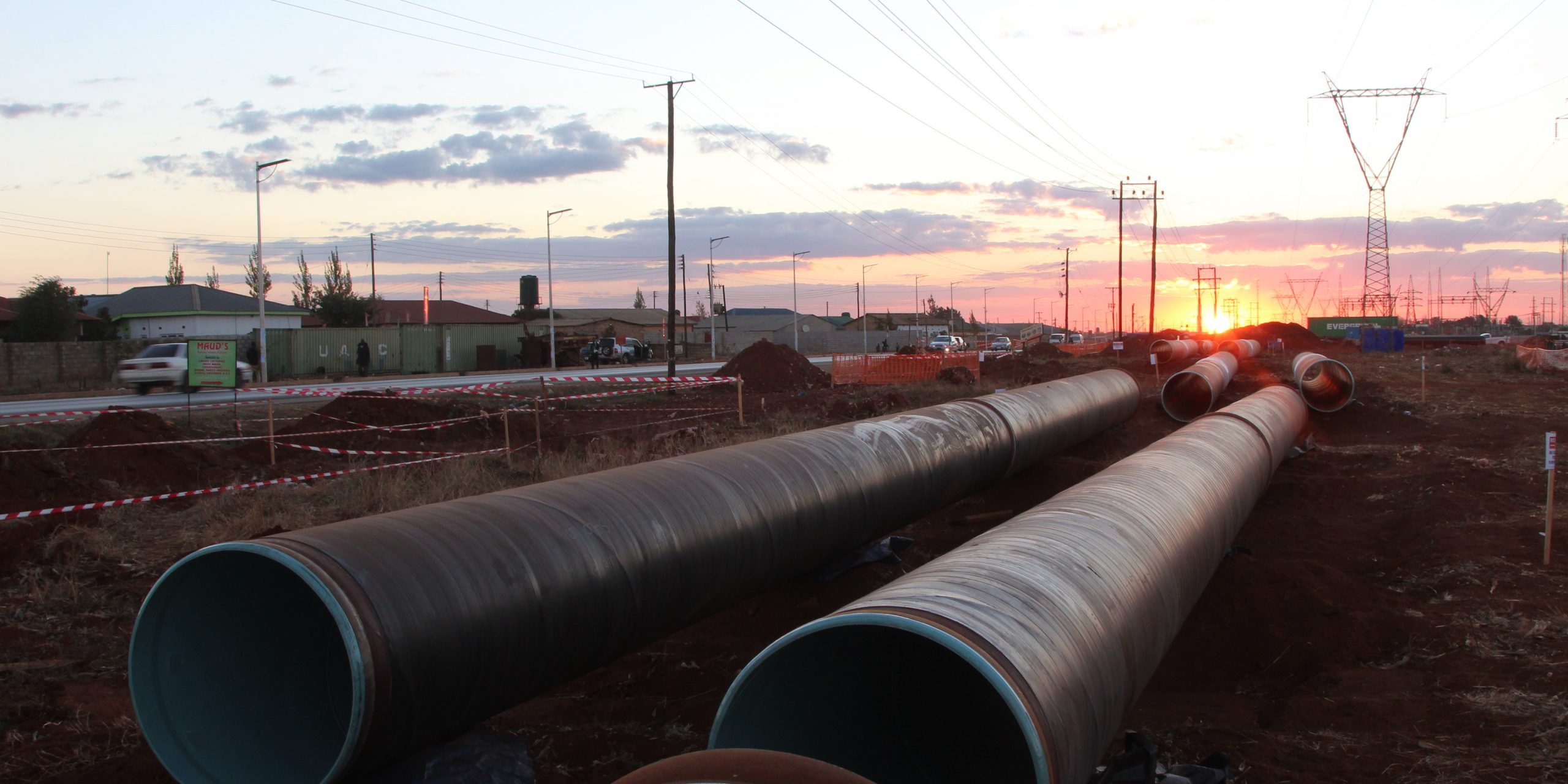
Throughout compact development and implementation, MCC coordinated closely with the GOZ and donor community on water and sanitation issues. The GOZ’s commitment to sector reform (starting in the 1990s, as outlined in the Country Context section of this report) has created a policy environment conducive to ongoing progress in water and sanitation. The creation of the Ministry of Water Supply, Sanitation and Environmental Protection was a sign of political will, while the existence of an independent regulator (NWASCO) should facilitate a tariff policy that allows for appropriate asset management and inclusive services beyond the end of the compact. Donors actively working on these issues in Zambia include the German Development Cooperation (GIZ), German Development Bank (KfW), United Nations Children’s Emergency Fund (UNICEF), Japan International Cooperation Agency (JICA), African Development Bank (AfDB), European Investment Bank (EIB), and World Bank (WB).
Sector investment master plans can help governments prioritize investments, add significant value beyond the compact investment, and ensure sustainability. As part of the compact development process, MCC funded Water Supply and Sanitation Investment Master Plans that were finalized in 2011. As mentioned previously, these plans were used to identify investment strategies for the water supply and sanitation systems managed by LWSC. LWSC used the investment master plans to prioritize future investments and leverage additional resources from donors. Compact-leveraged investments include:
- The World Bank Group’s Public-Private Infrastructure Advisory Facility—a multi-donor technical assistance facility—provided $690,000 for multi-year technical assistance to improve the commercial viability of LWSC and to strengthen the institutional capacity of the GOZ to attract investment in water supply and sanitation infrastructure.
- Water and Sanitation for the Urban Poor (WSUP)—an international NGO bringing market and innovative solutions to provide water and sanitation to the urban poor—signed an agreement with MCA and LWSC that resulted in technical and consulting services support to the compact and complementary interventions alongside LWSC. WSUP is estimated to have invested approximately $290,000 in performing formative research to inform the development of an information, education, and communications (IEC) campaign strategy and to identify creative concepts for messaging for the compact as a whole.
- The Lusaka Sanitation Programme (LSP), with an estimated $304 million supported by the GOZ ($4 million), the World Bank ($65 million), AfDB ($50 million), EIB ($138 million) and KfW ($47 million), is a 5-year initiative by LWSC aimed improving Lusaka residents’ quality of sanitation by providing affordable sanitation options. At the compact’s end, LSP feasibility studies were ongoing. Additionally, compact consultants embedded at LWSC and LCC ensured institutionalization of IEC and social integration and gender mainstreaming capacity, including support of LCC’s ability to enforce the Government’s Public Health Act, which will ultimately benefit the LSP as well as improve sustainability of the compact’s water supply and sanitation investments.
- The New Lusaka Bulk Water Supply Project, valued at approximately $190 million with support from JICA and AfDB, aims to construct a new water intake and treatment plant at Kafue, a distribution main, and reservoirs. The project is in its initial pre-feasibility stage and under consideration for financing.
- Launched in December 2016, the Lusaka Water Security Initiative (LuWSI) is multi-stakeholder initiative, which includes 24 partners from the public sector, international donors, private sector and civil society actors and aims to improve water security in Lusaka. Specifically, it focuses on groundwater pollution prevention, sustainable groundwater exploitation, water flows from the Kafue River and access to water supply and sanitation in Lusaka. MCA joined the LuWSI initiative and funded through the compact the construction of a barrier wall around a key wellfield to protect against encroachment; such an investment supports sustainability of MCC’s investments particularly with the objective of protecting Lusaka’s water resources. Protection of the wellfield is also relevant to sustainability of an Innovation Grant Program activity supporting supply of water to Jack Compound, as referenced above.

